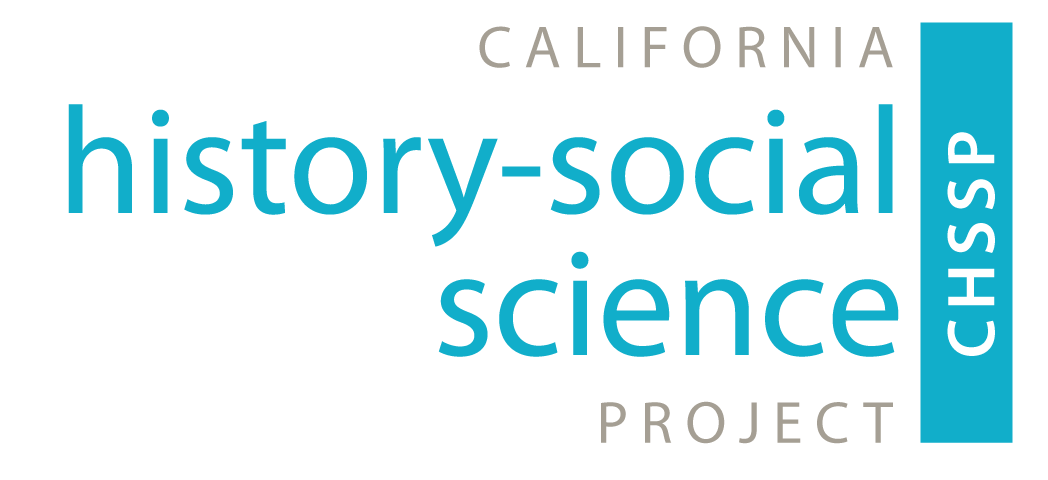Monthly Highlights – September 2021
- Blog Posts
- “Monthly Highlights and Focused Resources” (09.01.2021)
- Featured Teaching Resources
- Mendez v Westminster - 4th Grade
- This lesson plan teaches students about a Supreme Court case, Mendez v Westminster, which was a step in the process of ending segregation in California schools. The lesson provides resources to teach students about the Mendez family and connects their experience to other Mexican American families.
- Bracero Program - 11th Grade
- This lesson plan provides an overview of the Bracero Program with conceptual questions, primary source documents for analysis, and interpretive exercises. Read more about it in our September 1st blog post.
- Latinx Civil Rights - No Grade Specified
- This is a set of guided notes for students to take to analyze how Latinx leaders fought for civil rights. There are several useful videos in the document, as well as a broad reflection question for students.
- Chicano Civil Rights - 11th Grade
-
This lesson provides sources from the Chicano/Chicana civil rights movement in California with a focus on student-led movements and cultural production. Students can analyze sources and engage in a final activity where they investigate Chicano/Chicana activism in our region.
-
- Mendez v Westminster - 4th Grade
- Current Events
- Coming Soon
- Teacher Spotlight
- Coming Soon
- Featured Picture Books
- Separate is Never Equal: Sylvia Mendez and Her Family’s Fight for Desegregation by Duncan Tonatiuh
- Seven years before Brown v. Board of Education, the Mendez family (and others) fought to end segregation in California schools. The true story of a fight for justice and equality. There are many opportunities for students to reflect and discuss. Have students pay attention to Sylvia’s position on the page as the story progresses.
- Latinitas: Celebrating 40 Big Dreamers by Juliet Menendez
- Discover how 40 influential Latinas became the women we celebrate today in this collection of short biographies from all over Latin America and across the United States. These biographies provide a much-needed perspective in the classroom
- Todos Iguales: Un Corrido de Lemon Grove/ All Equal: A Ballad of Lemon Grove by Christy Hale
- The story of the 1931 Lemon Grove Incident, in which Mexican families in southern California won the first Mexican American school desegregation case in US history. Spanish and English text is included side-by-side! It provides excellent background information, including primary sources.
- Mario and the Hole in the Sky by Elizabeth Rusch
- Mario Molina, a Mexican American chemist, discovered that CFCs were destroying the earth's protective ozone layer. This book is an important story in the discussion of global warming. It has good information about Ozone Holes and Global Warming included in the back of the book.
- Separate is Never Equal: Sylvia Mendez and Her Family’s Fight for Desegregation by Duncan Tonatiuh
- Recent Scholarship
- Lorena Oropeza, The King of Adobe: Reies López Tijerina, Lost Prophet of the Chicano Movement (2019)
- “To many young Mexican American activists at the time, Tijerina and the Alianza offered a compelling and militant alternative to the nonviolence of Cesar Chavez and Martin Luther King Jr. Tijerina's place at the table among the nation's leading civil rights activists was short-lived, but his analysis of land dispossession and his prophetic zeal for the rights of his people was essential to the creation of the Chicano movement.”
- Marian Schlotterbeck, Beyond the Vanguard: Everyday Revolutionaries in Allende’s Chile (May 2018)
- “In her groundbreaking book Beyond the Vanguard, Marian E. Schlotterbeck explores popular politics in Chile in the decade before Augusto Pinochet’s dictatorship and provides an in-depth account of how working-class people transformed the existing social order by embracing radical politics. Schlotterbeck eloquently examines the lost opportunities for creating a democratic revolution and the ways that the legacy of this period continues to resonate in Chile and beyond.”
- Ana Elizabeth Rosas, Abrazando el Espíritu: Bracero Families Confront the US-Mexico Border (2014)
- “Intimate and personal experiences are revealed to show how Mexican immigrants and their families were not passive victims but instead found ways to embrace the spirit (abrazando el espíritu) of making and implementing difficult decisions concerning their family situations—creating new forms of affection, gender roles, and economic survival strategies with long-term consequences.” Click here to view excerpts from this monograph that are especially useful for students.
- Lorena Oropeza, The King of Adobe: Reies López Tijerina, Lost Prophet of the Chicano Movement (2019)
